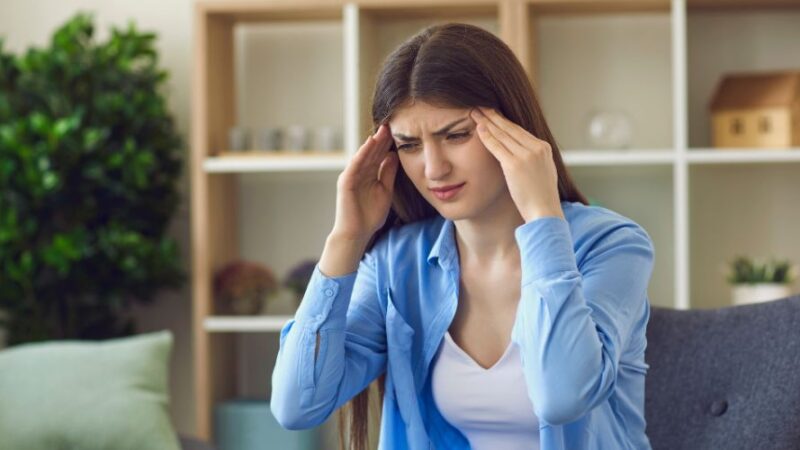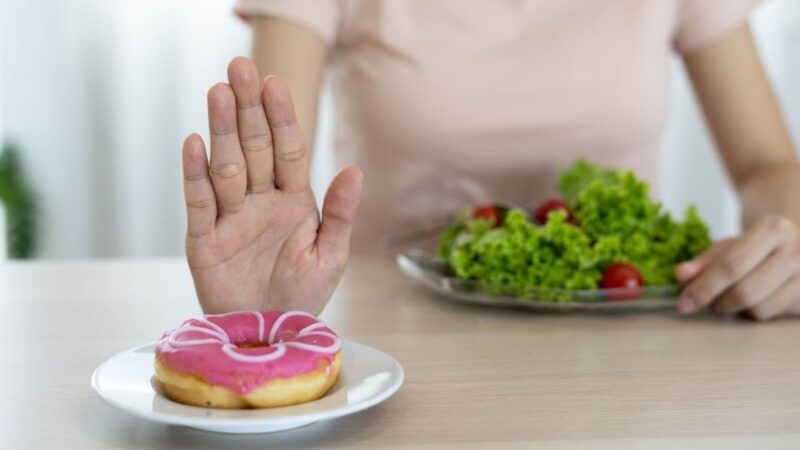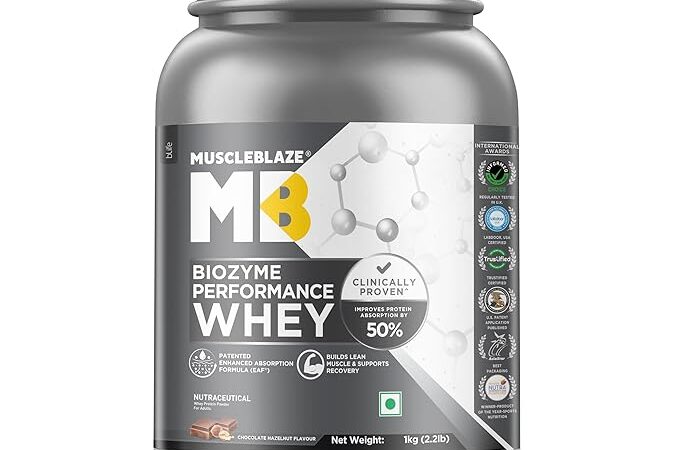What to Eat and Avoid for a Healthier Period
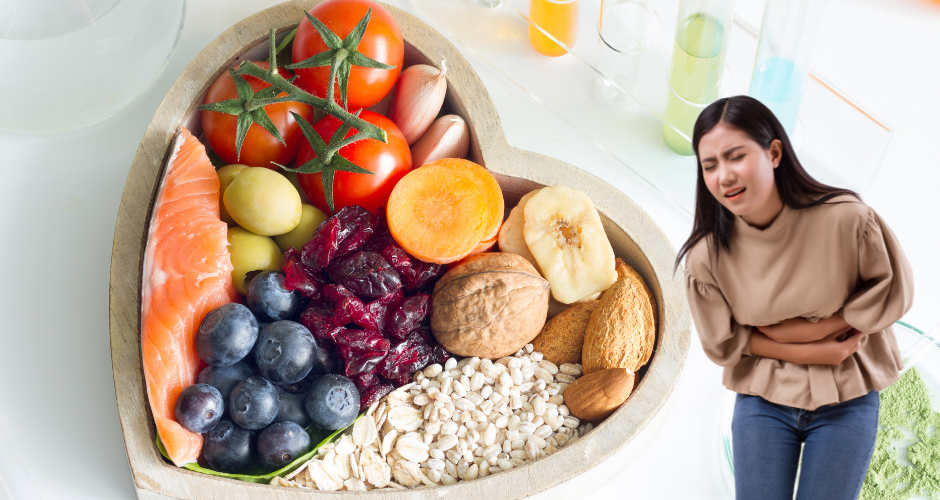
Maintaining a balanced diet is essential for overall health, but it becomes especially important during your menstrual cycle. The foods you eat can have a significant impact on your comfort and well-being. Here’s a guide on What to Eat and Skip for a Healthier Period.
What are the best foods to eat during my period?
1. Leafy Green Vegetables
Why: Leafy greens like spinach, kale, and Swiss chard are rich in iron, which is crucial during menstruation when your iron levels can dip due to blood loss. They also contain magnesium, which helps to alleviate cramps and bloating.
How to Incorporate: Add spinach to smoothies, enjoy a kale salad, or sauté Swiss chard as a side dish.
2. Fatty Fish
Why: Fatty fish such as salmon, mackerel, and sardines are high in omega-3 fatty acids, which have anti-inflammatory properties that can help reduce menstrual cramps. They are also a good source of vitamin D and B vitamins.
How to Incorporate: Grill or bake salmon for dinner, add mackerel to salads, or enjoy sardines on whole-grain crackers.
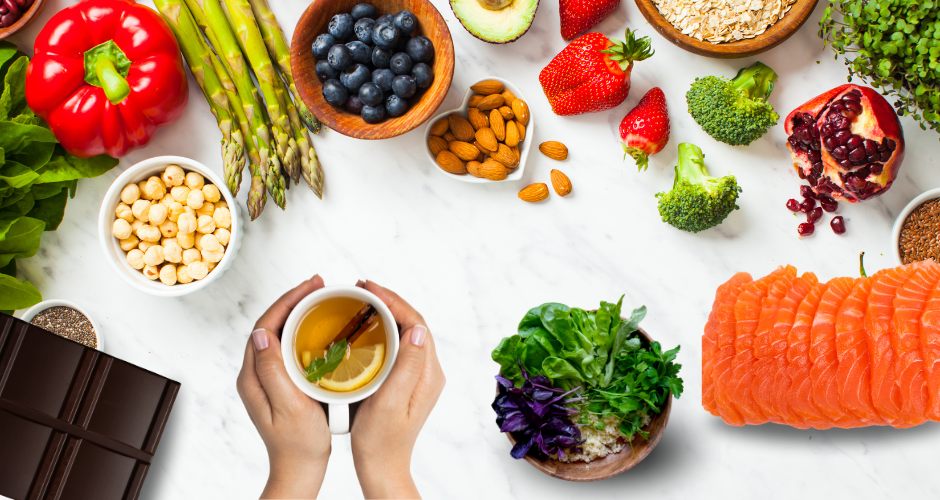
3. Whole Grains
Why: Whole grains like quinoa, brown rice, and oatmeal are rich in fiber, which helps regulate your digestive system and prevent bloating. They also provide essential B vitamins that can help combat fatigue and mood swings.
How to Incorporate: Start your day with a bowl of oatmeal, use quinoa as a base for salads, or serve brown rice with your favorite dishes.
11 Reasons Why Your Period Is Late
4. Fruits
Why: Fruits, especially those high in water content like watermelon and cucumber, help keep you hydrated and reduce bloating. Berries, oranges, and bananas are packed with vitamins and antioxidants that support your overall health.
How to Incorporate: Snack on fresh fruit throughout the day, add berries to yogurt or cereal, or blend a refreshing fruit smoothie.
5. Nuts and Seeds
Why: Nuts and seeds are excellent sources of magnesium and healthy fats. Magnesium helps relax muscles and reduce cramps, while healthy fats are essential for hormone production and overall well-being.
How to Incorporate: Snack on a handful of almonds or walnuts, sprinkle flaxseeds or chia seeds on your oatmeal, or make a trail mix with your favorite nuts and seeds.
6. Dark Chocolate
Why: Dark chocolate (with at least 70% cocoa) is a great source of magnesium and can help satisfy sweet cravings without the added sugars found in many other sweets. Magnesium helps to relax muscles and ease cramps.
How to Incorporate: Enjoy a small piece of dark chocolate as a treat, or add dark chocolate chips to your yogurt or oatmeal.
7. Herbal Teas
Why: Herbal teas like chamomile, ginger, and peppermint can help soothe cramps, reduce bloating, and alleviate stress. Chamomile has anti-inflammatory properties, ginger can reduce nausea, and peppermint can help with digestive discomfort.
How to Incorporate: Sip on a warm cup of herbal tea throughout the day, particularly when you’re experiencing discomfort.
Which foods should I avoid during my period?
1. Processed Foods
Why: Processed foods are often high in sodium, which can cause water retention and bloating. They also tend to contain unhealthy fats and sugars that can lead to energy crashes and exacerbate mood swings.
What to Avoid: Chips, processed snacks, frozen meals, and fast food.
2. Sugary Foods
Why: High sugar intake can lead to rapid spikes and drops in blood sugar levels, which can worsen mood swings and fatigue. Excessive sugar also contributes to inflammation and bloating.
What to Avoid: Candy, pastries, sugary drinks, and desserts.
3. Caffeine
Why: While moderate caffeine consumption might be fine, excessive caffeine can cause dehydration and increase anxiety, which can worsen menstrual symptoms like cramps and irritability.
What to Avoid: Excessive coffee, energy drinks, and high-caffeine sodas.
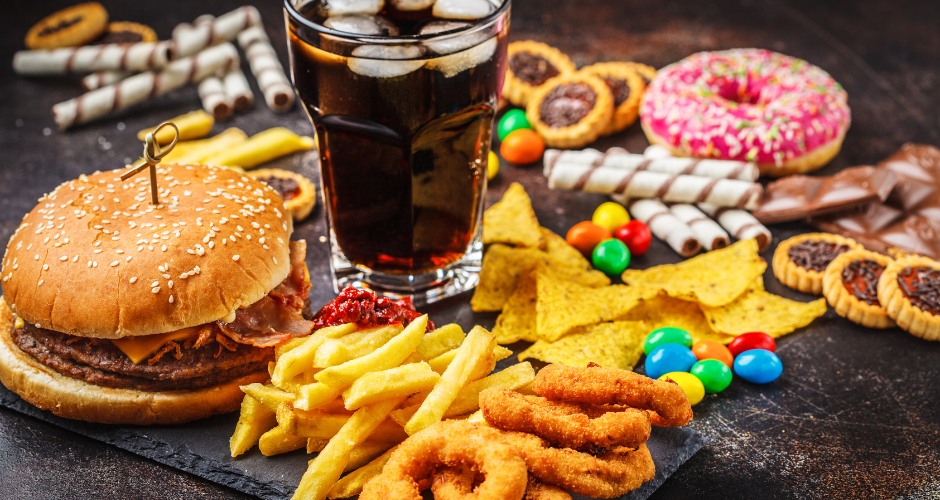
4. Alcohol
Why: Alcohol can disrupt your sleep cycle and cause dehydration, which can exacerbate menstrual symptoms. It can also increase inflammation and contribute to bloating.
What to Avoid: Wine, beer, and spirits, particularly in excess.
Menstrual Disorders – Types, Causes, Treatment
5. Red Meat
Why: Red meat can be high in saturated fats and can increase inflammation. Additionally, it contains arachidonic acid, which can increase the production of prostaglandins and lead to more severe cramps.
What to Avoid: Beef, lamb, and pork, especially fatty cuts and processed meats like sausages and bacon.
6. Dairy
Why: For some women, dairy can cause bloating and digestive issues. It contains arachidonic acid, which can also contribute to increased cramping for some people.
What to Avoid: Milk, cheese, and ice cream if you notice these symptoms.
7. High-Salt Foods
Why: Foods high in salt can lead to water retention and bloating, exacerbating the discomfort associated with your period.
What to Avoid: Salty snacks, canned soups, and processed meats.
Tips for a Healthier Period
Stay Hydrated
Drinking plenty of water helps reduce bloating and keeps your body functioning optimally. Aim for at least eight glasses of water a day, and consider increasing this amount if you’re very active or live in a hot climate.
Regular Exercise
While it might be the last thing you want to do, regular exercise can help alleviate menstrual symptoms. Activities like yoga, walking, and swimming can reduce cramps and improve your mood by releasing endorphins.
Adequate Sleep
Ensure you get enough sleep each night, as your body needs extra rest during your period. Aim for at least seven to nine hours of sleep to help manage fatigue and maintain your overall well-being.
Stress Management
High stress levels can worsen menstrual symptoms. Practice stress-reducing activities such as meditation, deep breathing exercises, or simply spending time in nature to help keep your stress levels in check.
Period Mistakes That Every Girl Should Avoid
Conclusion
What you eat can significantly influence how you feel during your period. By focusing on a balanced diet rich in fruits, vegetables, whole grains, and healthy fats, you can alleviate some of the common discomforts associated with menstruation. Equally important is knowing what to avoid, such as processed foods, excessive sugar, and caffeine. By making mindful choices about your diet, you can support your body through your menstrual cycle and promote overall health and well-being.
FAQs
Q: Why is it important to watch what I eat during my period?
A: Your diet can significantly impact how you feel during your period. Certain foods can help alleviate menstrual symptoms like cramps, bloating, and mood swings, while others can exacerbate these issues. Eating the right foods helps support your overall health and well-being during your cycle.
Q: How can leafy green vegetables help during my period?
A: Leafy greens like spinach, kale, and Swiss chard are high in iron and magnesium. Iron helps replenish the iron lost during menstruation, reducing fatigue. Magnesium helps to relax muscles, which can alleviate cramps and reduce bloating.
Q: Is caffeine bad for menstrual cramps?
A: Excessive caffeine can lead to dehydration, increased anxiety, and may exacerbate cramps. It’s
Q: Are there any specific fruits that are particularly beneficial during menstruation?
A: Yes, fruits like bananas, berries, and oranges are particularly beneficial. Bananas are rich in potassium, which helps reduce bloating and muscle cramps. Berries and oranges are high in vitamins and antioxidants that can help support overall health and reduce inflammation.
Q: What are some good snacks to have during my period?
A: Some healthy snacks include:
- A handful of nuts and seeds: For magnesium and healthy fats.
- Fruit salad: For hydration and vitamins.
- Dark chocolate: For a magnesium boost and to satisfy sweet cravings.
- Greek yogurt with berries: For probiotics and vitamins.
- Vegetable sticks with hummus: For fiber and protein.
Q: How can herbal teas help during my period?
A: Herbal teas like chamomile, ginger, and peppermint can help reduce menstrual cramps, soothe the digestive system, reduce bloating, and help you relax. They are caffeine-free and can be a comforting drink during your period.
Q: Can dairy products worsen menstrual symptoms?
A: For some women, dairy products can cause bloating and digestive discomfort due to lactose intolerance or sensitivity. If you notice these symptoms, it may be best to limit or avoid dairy during your period.
Q: Should I change my diet before and after my period as well?
A: Yes, maintaining a healthy diet throughout your menstrual cycle is beneficial. Eating nutrient-dense foods before your period can help minimize symptoms, and continuing to eat well after your period supports overall health and recovery.
Q: What foods should I eat during my period?
A: During your period, it’s beneficial to eat:
- Leafy Green Vegetables: High in iron and magnesium to combat fatigue and cramps.
- Fatty Fish: Rich in omega-3 fatty acids to reduce inflammation and cramps.
- Whole Grains: Provide fiber and B vitamins to help with digestion and energy levels.
- Fruits: Hydrating and packed with vitamins, particularly bananas, berries, and oranges.
- Nuts and Seeds: Contain magnesium and healthy fats.
- Dark Chocolate: Offers magnesium and satisfies sweet cravings.
- Herbal Teas: Chamomile, ginger, and peppermint can help soothe cramps and bloating.
Q: How to eat healthy during menstruation?
A: To eat healthily during menstruation:
- Stay Hydrated: Drink plenty of water to reduce bloating and maintain hydration.
- Balanced Meals: Include a mix of lean proteins, healthy fats, whole grains, and a variety of fruits and vegetables.
- Limit Processed Foods: Avoid high-sodium and sugary foods to prevent bloating and energy crashes.
- Moderate Caffeine and Alcohol: Too much can increase dehydration and exacerbate menstrual symptoms.
- Regular, Small Meals: Eating smaller, more frequent meals can help stabilize blood sugar levels and reduce cravings.
Q: Can you eat vegetables while on a period?
A: Absolutely. Vegetables are highly recommended during your period. Leafy greens like spinach and kale provide iron and magnesium, while other vegetables like broccoli and bell peppers are rich in vitamins and fiber, which can help reduce bloating and support overall health.
Q: Can you eat hash browns during your period?
A: Hash browns can be enjoyed in moderation. However, they are often high in fat and sodium, which can contribute to bloating and water retention. Opt for homemade hash browns using minimal oil and seasoning to make them a healthier choice.
Q: What foods cause heavy periods?
A: Some foods might contribute to heavier periods or exacerbate symptoms, including:
- High-Sodium Foods: Can cause bloating and water retention.
- Sugary Foods: Can lead to energy crashes and worsen mood swings.
- Caffeine: Excessive caffeine can increase anxiety and worsen cramps.
- Alcohol: Can disrupt sleep and cause dehydration.
- Red Meat: Contains arachidonic acid, which can increase inflammation and menstrual cramps.
Q: What not to eat when you are on your period?
A: It’s best to avoid:
- Processed Foods: High in sodium and unhealthy fats.
- Sugary Foods and Drinks: Can lead to energy crashes and mood swings.
- Excessive Caffeine: Can cause dehydration and increase anxiety.
- Alcohol: Can disrupt sleep and contribute to dehydration.
- High-Salt Foods: Can lead to bloating and water retention.
Q: What to eat during each phase of the menstrual cycle?
A: Different phases of the menstrual cycle benefit from specific nutrients:
- Menstrual Phase: Focus on iron-rich foods (leafy greens, lean meats) and hydration (water, herbal teas).
- Follicular Phase: Eat protein-rich foods (eggs, nuts) and complex carbs (whole grains).
- Ovulatory Phase: Include antioxidant-rich foods (berries, leafy greens) and healthy fats (avocados, olive oil).
- Luteal Phase: Consume magnesium-rich foods (dark chocolate, nuts) and avoid excessive salt and sugar to reduce PMS symptoms.
Q: What foods help period cramping?
A: Foods that can help alleviate period cramps include:
- Fatty Fish: Omega-3 fatty acids reduce inflammation and cramping.
- Leafy Greens: High in magnesium, which helps relax muscles.
- Bananas: Rich in potassium, which can help reduce muscle cramps.
- Nuts and Seeds: Contain magnesium and healthy fats.
- Dark Chocolate: Provides magnesium and can satisfy sweet cravings.
- Ginger: Has anti-inflammatory properties that can reduce pain.
- Herbal Teas: Chamomile and peppermint can help relax muscles and reduce cramps.


